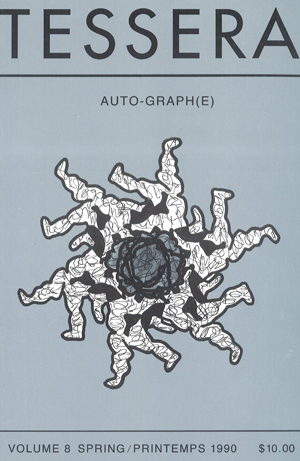Julia Kristeva and the Ethics of Exile
DOI:
https://doi.org/10.25071/1923-9408.23613References
Julia Kristeva, 'The ruin of a poetics,' in Stephen Bann and Joseph Boldt, eds., Russian Formalism (Edinburgh: Scottish Academic Press, 1973), p. 115.
H. Tristram Engelhardt, 'Viability and the Use of the Fetus,' in William Bondeson, H.T. Engelhardt, Stuart Spicker, Daniel Winship, eds., Abortion and the Status of the Fetus (Dordrecht, Boston, Lancaster: D. Reidel, 1983), pp. 184-5.
Kristeva, 'My Memorys Hyperbole,' in Domna Stanton, ed., The Female Autograph (Chicago & London: The University of Chicago Press, 1987), pp. 219-235. The essays originally appeared in The Female Autograph volume 12-13 of the New York Literary Forum, 1984.
Stanton, 'Preface, 'The Female Autograph, pp. vii-viii.
'Oscillation du 'pouvoir' au 'refus', translated by Marilyn August in Elaine Marks & Isabelle de Courtivron, eds., New French Feminisms (New York: Schocken, 1980), p. 167
Kristeva, 'Un nouveau type d'intellectuel: le dissident,' Tel Quel 74 (Winter 1977), p.7.
Julia Kristeva, 'The Bounded Text,' Desire In Language, pp. 42-3
Evelyn H. Zepp, 'The Criticism of Julia Kristeva: A New Mode of Critical Thought,' in Romantic Review 73:1 January 1982), pp. 80-97.
Kristeva, 'Approaching Abjection,' in Powers of Horror: An Essay on Abjection, trans. Leon Roudiez (New York: Columbia University Press, 1982), P. 29.
John Locke, An Essay on Human Understanding, ed., A.D. Woozley (New York: New American Library, 1974), pp. 206-220.
John Locke, Second Treatise of Government, ed. C.B.Macpherson (Indianapolis, Indiana: Hackett Publishing Co., 1980).
Mary Anne Warren, 'Can The Fetus Be An Organ Farm? ' Cases in Bioethics, ed. Carol Levine and Robert Veatch (New York: The Hastings Center Institute of Society, Ethics and the Life Sciences, 1982), p. 9
Tristram Engelhardt, 'Medicine and the Concept of Person,' Ethical Issues in Death and Dying, ed. Tom Beauchamp and Seymour Perlin (Englewood Cliffs, New Jersey: Prentice-Hall, 1978), pp. 94-101
Michael Tooley, Abortion and Infanticide (London: Oxford University Press, 1983)
David Smith, 'Who Counts? ' Journal of Religious Ethics 12:2 (1984), pp. 240-255.
Joel Fineberg, 'Rights,' in Warren T. Reich, ed., Encyclopedia of Bioethics (New York: The Free Press, 1978), p. 1511.
Judith Jarvis Thomson, 'A Defense of Abortion,' in Tom Beauchamp and LeRoy Walters, Contemporary Issues In Bioethics (Belmont, California: Wadsworth Pub. Co., 1982), p. 234.
Judith Jarvis Thomson, 'A Defense of Abortion,' Philosophy and Public Affairs 1:1 (1971), pp. 47-66.
Leon Roudiez, 'Twelve Points from Tel Quel,' Esprit Createur 14:4 (Winter 1974), pp. 291-303
Roudiez, French Fiction Today (New Brunswick: New Jersey: Rutgers University Press, 1972), pp. 369-387
Francis Barker, The Tremulous Private Body: Essays On Subjection (London and New York: Methuen, 1984).
Kristeva, 'Women's Time,' trans. Alice Jardine and Harry Blake, Signs 7:1 (1981); 'The Ethics of Linguistics,' pp. 23-4. https://doi.org/10.1086/493855
Jean-Paul Enthoven, interviewer, 'Julia Kristeva: à quoi servent les intellectuels? ' Le Nouvel Observateur (June 26, 1977), p. 99.
Kristeva, 'Pour une sémiologie des paragrammes,' Séméiotiké: Recherches pour une sémanalyse (Paris: Seuil, 1969), pp. 174-207
Mary Ann Caws, 'Tel Quel: Text and Revolution,' Diacritics (Spring 1973), p. 81. https://doi.org/10.2307/464586
Mikhail Bakhtin, Rabelais and His World, trans. Hélène Iswolsky (Bloomington: Indiana University Press, 1984), pp. 59-195.
Kristeva, In the Beginning Was Love: Psychoanalysis and Faith, trans. Arthur Goldhammer (New York: Columbia University Press, 1987), pp. 4-5.
Kristeva, Revolution in Poetic Language, trans. Margaret Waller (New York: Columbia University Press, 1984), p.233.
Kristeva, 'Stabat Mater,' in Tales of Love, trans. Ikon Roudiez (New York: Columbia University Press, 1987), pp. 259-260.
Smaro Kamboureli, in the second person (Edmonton, Alberta: Longspoon Press, 1985), p. 27; p. 77; p. 78
Helen Buss, 'Canadian Women's Autobiography,' in Shirley Neuman and Smaro Kamboureli, eds., A Mazing Space: Writing Canadian Women Writing (Edmonton, Alberta: Longspoon / Newest, 1986), pp. 156-7.
John Donlan, 'Communication Deluxe,' Contemporary Verse 2 10:3 (Spring 1987), p. 58.
Lola Lemire Tostevin, Color of Her Speech (Toronto: The Coach House Press, 1982), unpaginated.
Tostevin, 'Breaking the hold on the story: the feminine economy of language,' in A Mazing Space, pp. 386.
Kristeva, 'Phonetics, Phonology and Impulsional Bases,' trans. Philip Lewis, Diacritics (Fall 1974), p. 34. https://doi.org/10.2307/465110
Lola Lemire Tostevin, 'sophie (Toronto: The Coach House Press, 1988), p. 74
'Héréthique de l' amour,' in Tel Quel 74 (Winter 1977), pp. 30-49. It is translated in Tales of Love, pp. 234-263.
'Julia Kristeva in Conversation with Rosalind Coward,' in Desire (London: Institute of Contemporary Arts, 1984), p. 24
'La Femme, ce n'est jamais ça,' trans. by Marilyn August as 'Women Can Never Be Defined,' in New French Feminisms, p. 141.
Kristeva, 'Within the Microcosm of 'The Talking Cure,"' in Joseph Smith and William Kerrigan, eds., Interpreting Lacan (New Haven and London: Yale University Press, 1983), p. 38.


